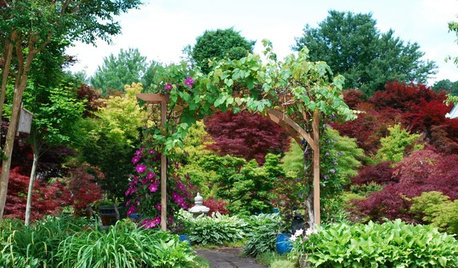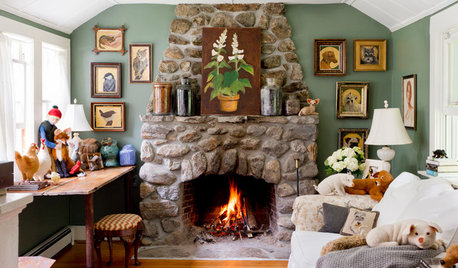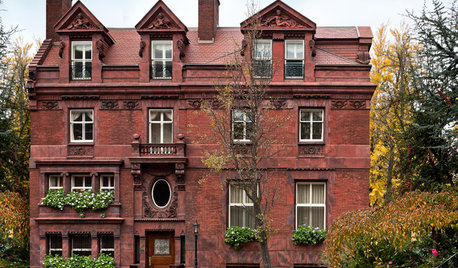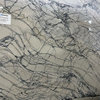Now it's beavers
rococogurl
17 years ago
Related Stories

PETSHouzz Call: Show Us Your Summer-Loving Dog!
Share a photo of your pooch kicking back in the backyard, helping you in the workshop or enjoying your favorite summer getaway
Full Story
DECLUTTERINGDecluttering — Don't Let Fear Hold You Back
Sure, you might make a mistake when tackling a decluttering project, but that's OK. Here's why
Full Story
LIFEWhy We Want a House With a Great View
Research shows that just looking at nature has powerful mental benefits. Here's how to get a boost — with or without a million-dollar view
Full Story
GARDENING GUIDES12 Japanese Maples for a Sunny Garden
The right maple in the right place shines in hot summer sun
Full Story
PRODUCT PICKSGuest Picks: Indispensable Tools for DIYers
Build your tool arsenal with these, and you’ll have the right equipment for any home project you take on
Full Story
COTTAGE STYLEMy Houzz: Creativity Flows in a New Hampshire Cottage
Simplicity and natural surroundings provide inspiration for an artist’s work and for her home’s peaceful, pretty interiors
Full Story

LIFEHow to Outsmart Backyard Critters
Learn to think like a raccoon, skunk or squirrel to keep your home safe and your garden intact
Full Story
PETS50 Dog Photos Worth a Wag
Design hounds: Share in the pet love with Houzzers' snapshots of their beloved dogs at home, in the workshop and at play
Full Story
MOST POPULARHouzz TV: Fred MacMurray’s Enduring Farmhouse Retreat
One of the most beloved actors of the 20th century traded fame for farm implements on this California ranch. His daughter shows us around
Full StoryMore Discussions










allison0704
chispa
Related Professionals
El Sobrante Kitchen & Bathroom Designers · Ridgefield Kitchen & Bathroom Designers · Williamstown Kitchen & Bathroom Designers · Town 'n' Country Kitchen & Bathroom Designers · Ewa Beach Kitchen & Bathroom Remodelers · Lincoln Kitchen & Bathroom Remodelers · Linton Hall Kitchen & Bathroom Remodelers · Park Ridge Kitchen & Bathroom Remodelers · Bon Air Cabinets & Cabinetry · Burr Ridge Cabinets & Cabinetry · Avocado Heights Cabinets & Cabinetry · Black Forest Cabinets & Cabinetry · Tinton Falls Cabinets & Cabinetry · Foster City Tile and Stone Contractors · Palos Verdes Estates Design-Build Firmsmsafirstein
housekeeping
rococogurlOriginal Author
housekeeping
rococogurlOriginal Author
allison0704
rococogurlOriginal Author
chispa
allison0704
rococogurlOriginal Author
chispa
housekeeping
rococogurlOriginal Author